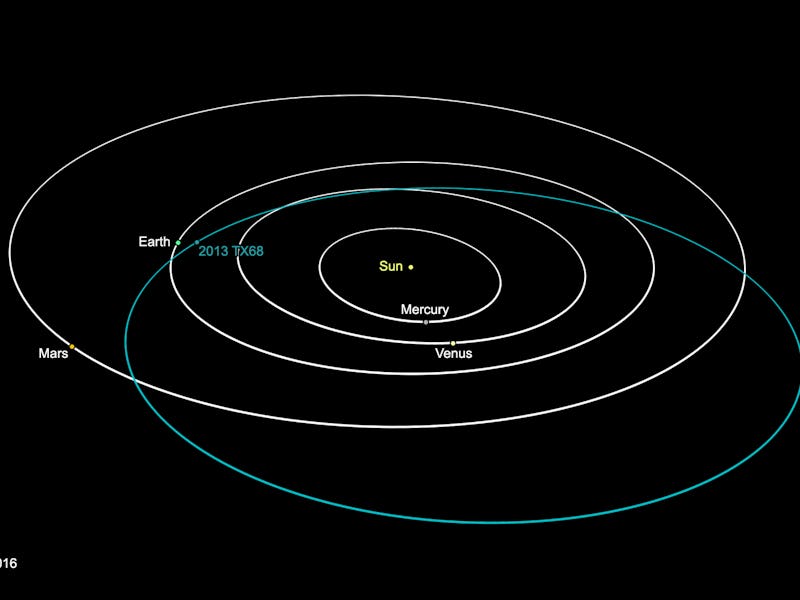A 100-Foot Asteroid Is About to Streak Past Earth
But it won’t hit us. Probably.

A rock a little longer than an NBA court will zip past Earth this week. NASA scientists expect it to pass us by about 3 million miles, but they also point out there’s a chance it could come as close as 15,000 miles, which is — in a galactic sense — an almost negligible distance.
The asteroid, 2013 TX68, was discovered in — you guessed it — 2013. Scientists tracked it for three days as it flew past Earth two years ago, before it disappeared into the daytime sky. Back then, astronomers weren’t able to get a good sense of its orbit around the sun. For the last few weeks, NASA has been refining its prediction of what path the 2013 TX68 will take during its flyby of Earth — and while they’re confident it won’t hit us, they can’t say with 100 percent certainty how close it will get.
Still, there’s no reason to hold on to your butts. New data gathered by the scientists at NASA’s Center for Near-Earth Object Studies (CNEOS), suggests the asteroid will likely pass farther away from the planet than previously thought.
“There is no concern whatsoever regarding this asteroid - unless you were interested in seeing it with a telescope,” Paul Chodas, manager of CNEOS, said in a news release.
And that’s actually a bummer for anyone who hoped for a chance to watch it streak across the night sky. ”Prospects for observing this asteroid, which were not very good to begin with, are now even worse because the asteroid is likely to be farther away, and therefore dimmer than previously believed,” said Chodas.
Still, asteroid impacts — though rare — aren’t something NASA takes lightly. The space agency, along with ESA and other institutions around the world, have ramped up research in both tracking asteroids and investigating ways we can protect ourselves from imminent impact. So while 2013 TX68 won’t hit us, expect scientists to use this opportunity to learn more about how they can correctly predict asteroid orbits more effectively so we can prepare against future threats.